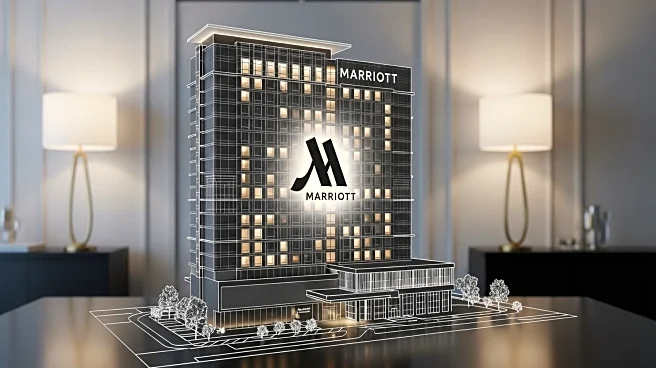What is the story about?
What's Happening?
Monomoy Property Ventures and Axonic Capital have acquired the property at 590 West Peachtree Street in Atlanta, with plans to convert it into a Marriott hotel by late 2027. The facility currently includes 462 guestrooms, over 20% of which are suites equipped with kitchenettes, and more than 30,000 square feet of meeting space. The renovation will involve upgrades to guestrooms, suites, and public areas, as well as modernization of back-of-house systems to meet Marriott brand standards. Schulte Hospitality Group has been appointed to manage the property, and Cooper Carry will serve as the architect for the project. Construction is scheduled to begin in late 2026, following the World Cup events in Atlanta, with a reopening planned for late 2027, ahead of Super Bowl LXII.
Why It's Important?
The conversion of 590 West Peachtree Street into a Marriott hotel is significant for Atlanta's hospitality industry, as it aligns with the city's growing demand for high-quality accommodations. The timing of the renovation, set to coincide with major events like the World Cup and Super Bowl LXII, suggests strategic planning to capitalize on increased visitor traffic. This development could boost local tourism and economic activity, providing new job opportunities and enhancing Atlanta's reputation as a destination for major events. Additionally, the inclusion of the property in the Marriott Bonvoy loyalty program may attract a broader customer base, benefiting both the hotel and the city's hospitality sector.
What's Next?
As construction begins in late 2026, stakeholders will likely focus on ensuring the project stays on schedule to meet the planned reopening ahead of Super Bowl LXII. The hospitality industry in Atlanta may see increased investment and development activity as other companies seek to capitalize on the city's growing prominence as a host for major events. Furthermore, the renovation could prompt discussions about sustainable building practices and the integration of technology to enhance guest experiences.
Beyond the Headlines
The conversion of the property into a Marriott hotel may have broader implications for urban development in Atlanta. As the city continues to attract large-scale events, there may be increased pressure to improve infrastructure and transportation systems to accommodate visitors. Additionally, the project could influence real estate trends, with developers seeking opportunities to invest in properties that can be transformed into high-demand accommodations.















